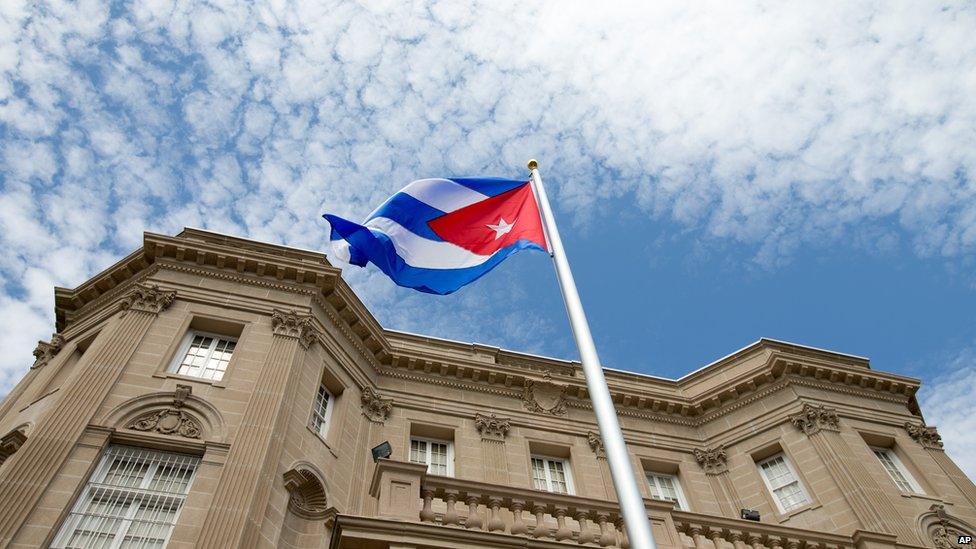The problem of Cuba football defections
- Published
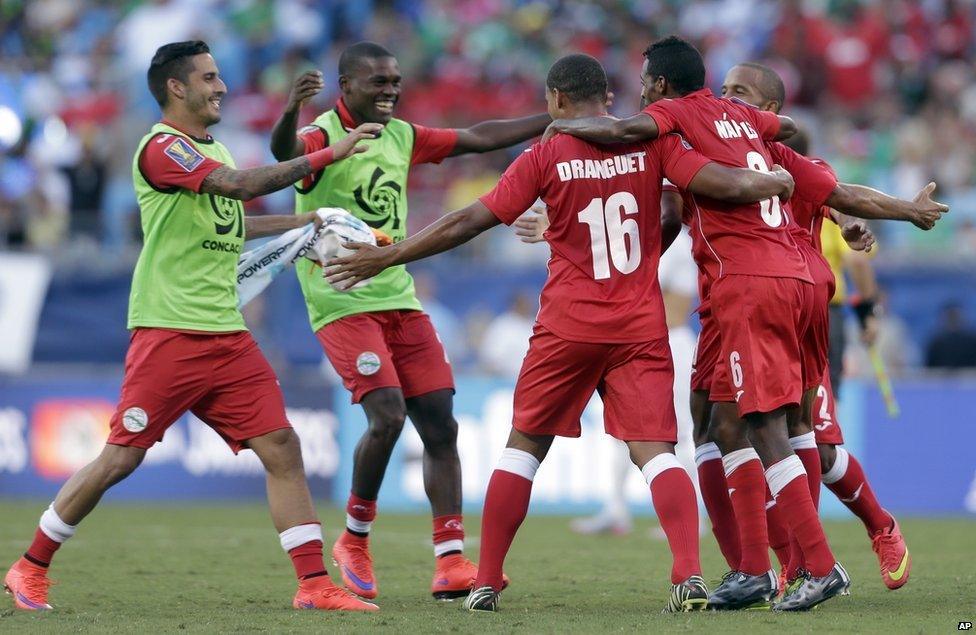
Cuban players celebrate after their win in Charlotte that saw them advance to the quarter-final
US-Cuba relations may have entered a new era with the opening of embassies but defections to the US seem to be on the rise.
Cuba's national football team was knocked out of the Gold Cup at the weekend but the team's return flight from the US will have a few extra spaces.
At least four players have defected since the tournament kicked off on 7 July. Maybe more.
The Cuban team came to their quarter-final match in Baltimore with a 19-man squad, just one more than what is required to participate in the tournament.
"I think it's enough to play the game and to play the tournament," coach Raul Gonzalez told reporters.
The American team's coach, Jurgen Klinsmann, seemed to feel his counterpart's pain when he said: "We know what they're going through on and off the field, so it's huge admiration with how they dealt with everything they went through."
Since Presidents Obama and Castro announced a historic rapprochement between the two ideologically opposite neighbours in December, relations have been warming.
On Monday, a Cuban embassy opened in Washington and an American embassy started business in Havana - the first embassies the two countries have exchanged in a half-century.
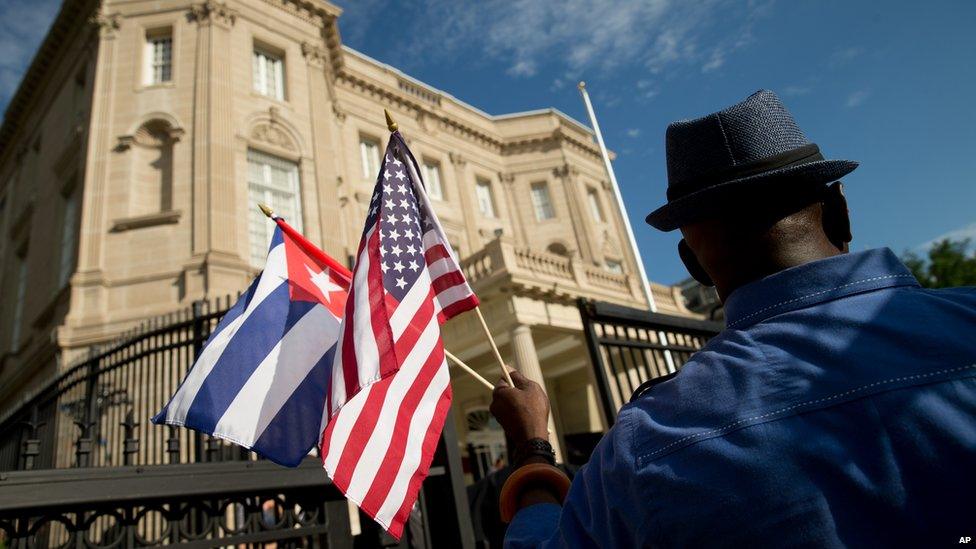
The defecting players are taking advantage of a policy known as "wet foot, dry foot" which, despite warming relations, remains in place.
The policy, which has been in effect since 1995, allows Cuban nationals who reach US land to stay and apply for residency - immigrants who are picked up by authorities at sea are not.
The policy has drawn the ire of the Cuban delegation during historic talks that have taken place over the past few months, and has been the scourge of Cuban sports teams for quite a while longer.
The Obama administration has recently said that it has "no plans to alter the current migration policy, external", including the Cuban Adjustment Act, from which the policy is derived.
Cuban baseball has lost several players to the US leagues over the years, but this has traditionally been due to the huge sums of money paid to professional players in the US and the poor economy in Cuba.
"Most of the defections have involved players leaving illegally (often with the aid of human traffickers) from Cuba itself," Peter Bjarkman, author of several books on Cuban baseball, external, told the BBC.
"Defections while Cuban teams are on US soil have been fairly rare, numbering about a dozen since the mid-1990s."
However, the tide may be shifting. This year alone at least four baseball players defected while on US soil. Reports say that in February, two baseball players flipped sides, external while playing in Puerto Rico, and in July two more absconded, external in North Carolina.
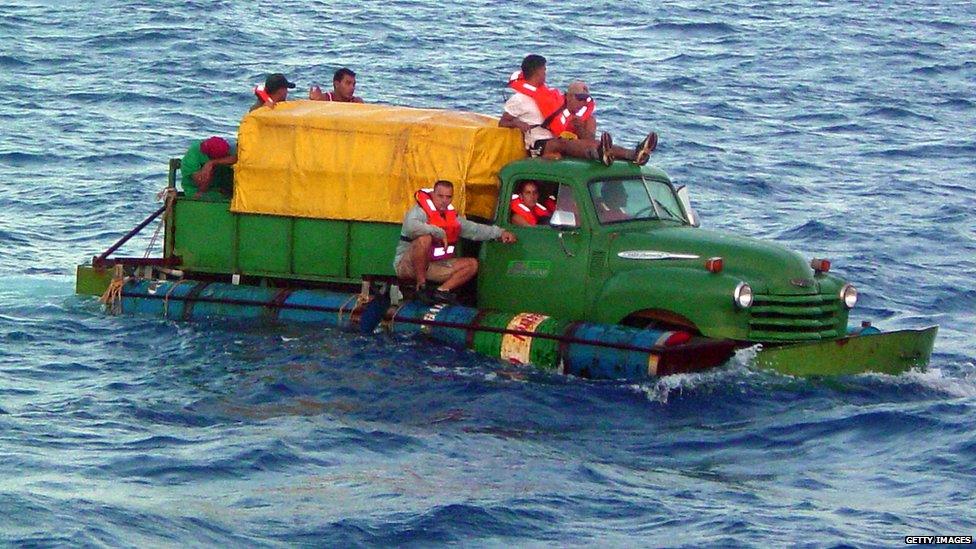
Cuban migrants who reach US land are allowed to stay, while those caught at sea are sent back to Cuba
The national football team has had an especially onerous time keeping their squad intact since the start of the Gold Cup, a tournament involving teams from North America, Central America and the Caribbean.
The Associated Press reported that forward Keiler Garcia took-off ahead of the opener against Mexico in Chicago - where the Cubans lost 6-0.
At some point as the team moved on to Arizona to take on Trinidad and Tobago, the team shed their backup goalkeeper, Arael Arguellez. They then lost that match 2-0.
Ahead of a surprising 1-0 win over Guatemala in North Carolina last week, the team reportedly lost Dario Suarez, who was listed as missing on the team's squad sheet.
Aricheel Hernandez was also listed as missing, but the AFP news agency said this was due to visa problems.
After the game, the team watched what reports suggest was the rather dramatic departure of midfielder Ariel Martinez.
According to a Univision report, external, Mr Martinez cried what his team-mates thought were tears of joy on the bus ride back to the hotel, before "running away into the darkness".
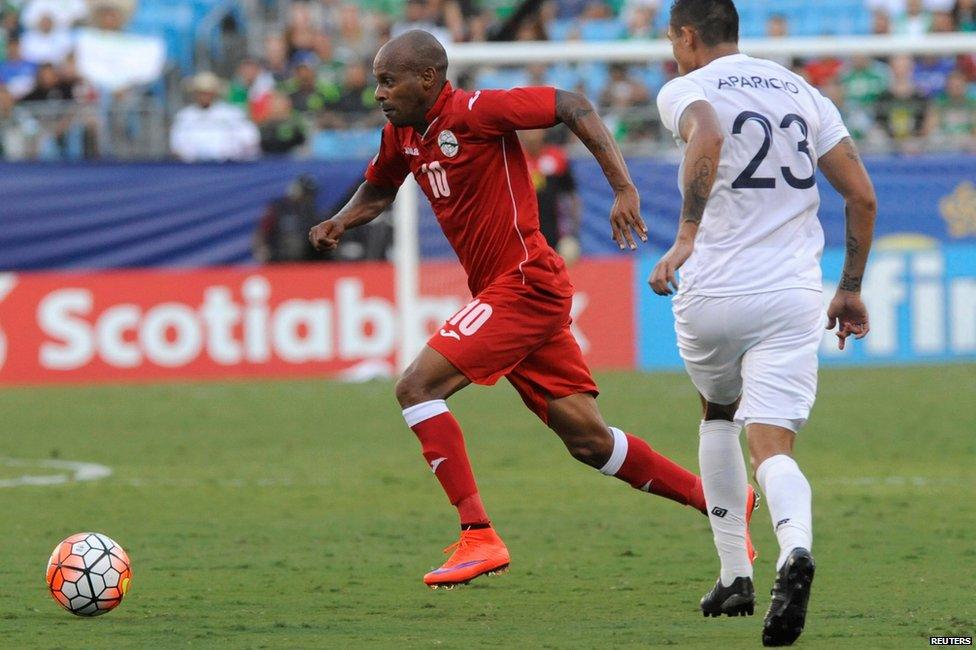
Mr Martinez (L) reportedly defected after crying on the bus ride back to the team's hotel
Around two dozen Cuban football players (from under-23 and senior squads) have defected while playing in the United States since 1999, according to the Washington Post, external.
Mr Bjarkman pointed out that the baseball and football player's motivations to leave may differ.
"The baseball players are leaving for the money offered by pro contracts in the US," he said. "With the soccer players it may be slightly different since few of Cuba's soccer players are big name prospects who will demand high signing bonuses from pro teams.
"But, given the bad economy in Cuba, their motives are probably also economic in large part."
Cuba last qualified for the World Cup in 1938, and the constant loss of players to the dry feet policy does not bode well for the team becoming more competitive any time soon.
However, as Mr Bjarkman points out, disappearing players has only partly hurt Cuban baseball.
"The overall performance of Cuban teams of course has been lowered somewhat with the loss of a number of key stars," he said. "But the Cubans have maintained a high level despite the losses."
And in the Gold Cup, the soccer team seems to have followed a similar trend, surprising fans by making it through to the quarter-finals despite defeats at the hands of Mexico and Trinidad and Tobago.
As for the players who defected, Cuban Coach Gonzalez said: "The players that aren't here now, they don't really mean anything to us because they've chosen their path."
- Published20 July 2015
